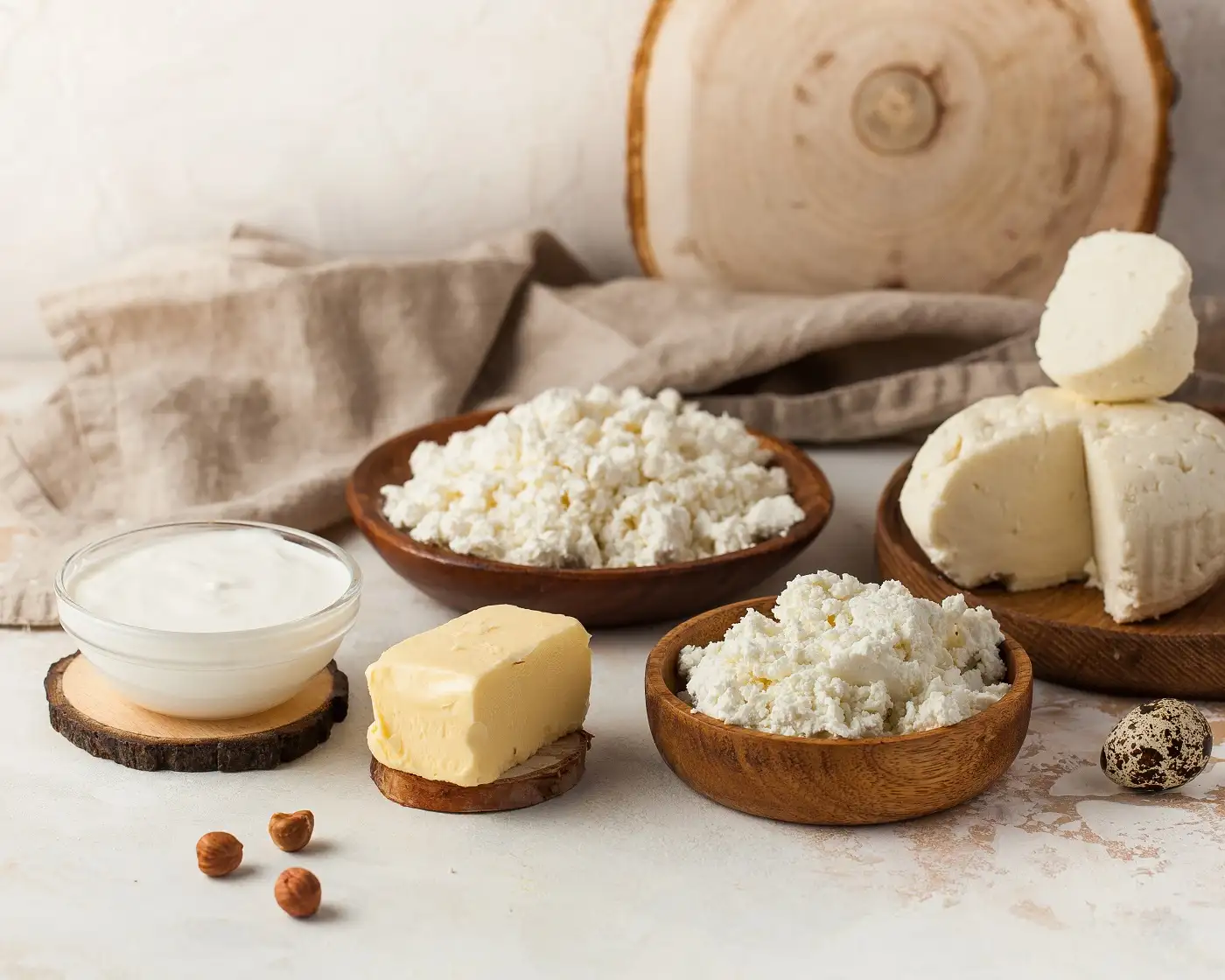Florida Cottage Food Law
Need to understand the Sunshine State's cottage food regulations? Download our comprehensive Florida Cottage Food Guide for a roadmap to starting and running your home-based food business!
Key Concepts
- Cottage Food Operation: An individual producing or packaging food products at their residence for direct sale to consumers under Florida Statute 500.80.
- Cottage Food Product: Non-hazardous food items produced and sold by a cottage food operation within the guidelines of Florida law.
- Residence: Your primary home where you live and operate your cottage food business, featuring a standard kitchen with typical residential appliances. You're limited to one conventional stove/oven (though double ovens are permitted).
- Potentially Hazardous Food: Foods requiring temperature control to remain safe by preventing harmful microorganism growth. These include raw animal products, certain plant foods, cut melons, cut greens, and special preparations like garlic-in-oil that haven't been modified for safety.
Starting a home-based food business in Miami opens exciting opportunities for culinary entrepreneurs. The cottage food law in Florida allows you to create and sell certain food products right from your home kitchen without commercial facilities, licenses, or permits.
This type of goods cannot be sold to a wholesaler, broker, distributor, restaurant, or shop.
Face-to-face selling is allowed at farmers’ markets, pop-up stores, flea markets, and roadside stands. However, cottage foods can’t be sold at wholesale, or a licensed retail shop such as a coffee shop that requires a permit.
A thing to consider here is that even though you don’t need a food license for cottage products, some farmers’ markets or other places where you sell person-to-person may require it, as they can have their own rules, which aren't covered by the state's cottage food regulations
2021 Florida Cottage Food Law Update

July 2021 brought welcome changes to Florida's cottage food landscape through the Home Sweet Home Act. This legislation expanded opportunities by:
- Raising the annual sales ceiling to $250,000 (previously just $50,000)
- Allowing online sales
- Permitting shipping via the United States Postal Service (USPS) and commercial carriers within state bounds
- Enabling delivery to events
List of Approved Cottage Foods
You may produce and sell these foods with some exceptions as they are unlikely to cause foodborne illness:
- Baked goods like bread, rolls, biscuits, cookies
- Cakes and pastries without perishable fillings or toppings
- Candies
- Honey (so long as not repacked)
- Butters & fruit spreads such as jams, jellies, and preserves
- Pies with fruit and dehydrated fruits
- Dried culinary herbs and mixed seasonings
- Pasta
- Cereals, snack mixes, and granola
- Coated and uncoated nuts
- Plain and infused vinegars
- Popcorn
List of Prohibited Cottage Foods
The following products aren’t allowed:
- Home-canned fruits, vegetables, chutneys, garlic dip, hummus
- Salsa, barbecue sauces, ketchup, mustard
- Any fish or shellfish items
- Pickled products
- Raw sprouts
- CBD or hemp
- Ice or ice products
- Refrigerated baked goods
- All dairy products
- Meat (fresh or dried)
- Cut fresh fruits and vegetables
- Drinks, beverages, fresh fruit/vegetable juices, syrups
- Vegetable butters (like pumpkin butter)
- Focaccia-style breads with cheeses or vegetables
Labeling Rules
Your cottage food products must come prepackaged with labels showing:
- The name and address of the cottage food operation and owner.
- Product name.
- Ingredients listed by weight (heaviest first).
- Net weight or volume.
- Allergen warnings in plain language for milk, eggs, fish, crustacean shellfish, tree nuts, peanuts, wheat, and soybeans. The law also mandates that these allergens be listed in the ingredient list, after the word "Contains", or in parentheses.
- Appropriate nutritional information as specified by federal labeling regulations, if any nutritional claim is made.
- The statement "Made in a cottage food operation that is not subject to Florida's food safety regulations" in 10-point (or larger) font that contrasts with the background.
Cottage Food Law in Miami-Dade & Broward Counties
While the Florida state cottage food law provides an accessible entry point for home-based food entrepreneurs, local county regulations add important requirements that you should know about.
- Miami-Dade County imposes spatial limitations — your cottage food production must be in your kitchen only, and that kitchen cannot exceed 25% of your total residence. You'll also need to obtain a certificate of use, and a permitting process may be required.
- You don’t have to undergo a kitchen inspection before launching your cottage food business. However, the Florida Department of Agriculture and Consumer Services (FDACS) can still inspect your operation if a customer complains about your food or practices. In such cases, inspectors may visit your home.
- Broward County cottage food law mandates that all businesses secure a business license. Depending on the operating name, this entails either an assumed business name certificate for those using a trade name (different from their full legal name) or a standard name certificate (requiring an EIN) for those operating under their full legal name.
Contact Lawyer For Business for the professional knowledge you need to successfully launch your food business from day one.
Contact Us TodayGrow Your Florida Cottage Food Operation with Solid Legal Support
Our Miami Cottage Food Lawyer Services

Business Formation & Compliance
Contract & Sales Agreement Assistance
Growth & Expansion Guidance
Why Choose Us as Your Florida Cottage Food Lawyers?
At Lawyer For Business, we help South Florida cottage food entrepreneurs adhere to complex regulations. Our deep knowledge of both state laws and regulations and county-specific requirements provides you with confidence as you build your home-based food business.
Deep Knowledge of Florida's Cottage Food Landscape
Our attorneys stay current with Florida's evolving cottage food regulations, including the 2021 Home Sweet Home Act. We understand certain counties' requirements that extend beyond state law. This industry knowledge helps you avoid common compliance pitfalls that derail many home-based food businesses.
Personalized Legal Strategy for Your Food Business
Every cottage food operation has unique legal needs based on product type, sales channels, and growth goals. We take time to understand your specific culinary venture and develop tailored legal solutions.
Proactive Problem Prevention
We don't just solve legal problems — we help prevent them through thoughtful planning and documentation. Our comprehensive cottage food business setup includes proper labeling review and compliance verification.
Growth-Focused Legal Partnership
As your cottage food business expands, we provide the legal framework to support sustainable growth. When you are ready, we can help you transition from home kitchen to commercial operation. Our attorneys will remain your partners throughout your entrepreneurial journey, adapting our services as your food business evolves.


Areas We Serve
We proudly serve businesses across New York and Florida. Below, you'll find some of the key locations where we've helped businesses thrive.
- In New York:
- In Florida:
Miami
Ready to Turn Your Kitchen Skills into a Thriving Business?
Don't let legal complexities stand between you and your cottage food dreams. Contact Lawyer For Business today so you can focus on creating exceptional products while we handle the legal details.

FAQ
If I rent a kitchen space, can I make and sell food, following the cottage food rules?
No, cottage food production is specifically limited to the kitchen of your own private residence.
Can I use commercial equipment to make cottage food?
No, you cannot use commercial equipment or kitchens for cottage food production. Florida's cottage food laws are designed to regulate low-risk food preparation in a home environment, emphasizing direct sales to avoid the complexities of commercial food establishments. The use of commercial equipment in a home setting raises concerns about food safety and proper storage, which is why the law mandates home kitchens for production.
Can I offer free samples of my cottage food?
Yes, but samples must be pre-packaged at home (no on-site cutting). While individual sample labels aren't needed, clearly labeled full-sized products must be displayed for ingredient information.
Do I need a lawyer to start a cottage food business in Florida?
Consulting with a lawyer can be beneficial. A lawyer can help you understand the legal requirements, ensure you comply with all state and local regulations, and advise you on liability issues and business structure. We can also help you expand your business beyond the scope of cottage food operations in the future.




.avif)
.avif)

.avif)

.avif)
.avif)

.avif)
